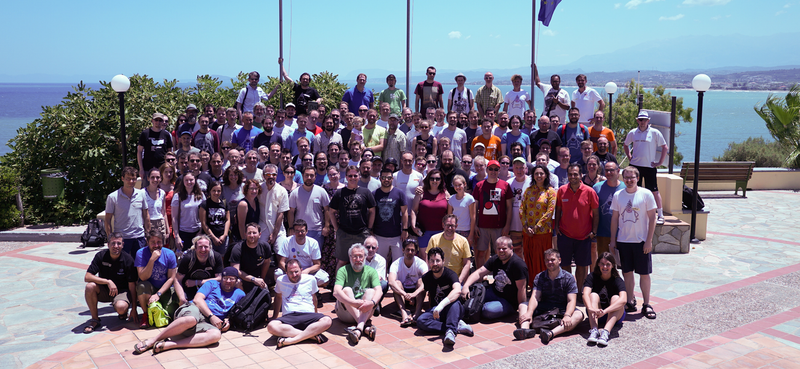Can you imagine a conference without a list of featured speakers? Would you attend a conference without an agenda?
I was lucky enough to attend JCrete 2017, a 5-day conference for Java developers that is held in Chania-Greece, and see for myself how such a unique conference (also called unconference) works in practice.
JCrete unconference: How does it work?
The very first day of JCrete, we were asked this question: “What do you wish to learn from this conference? What topics would you like to be discussed?” and each one of us was given a blank Post-it note, where we could write a topic that we would like to be discussed in our unconference. All those topics were posted on a board called Launchpad, with any similar topics being grouped together.
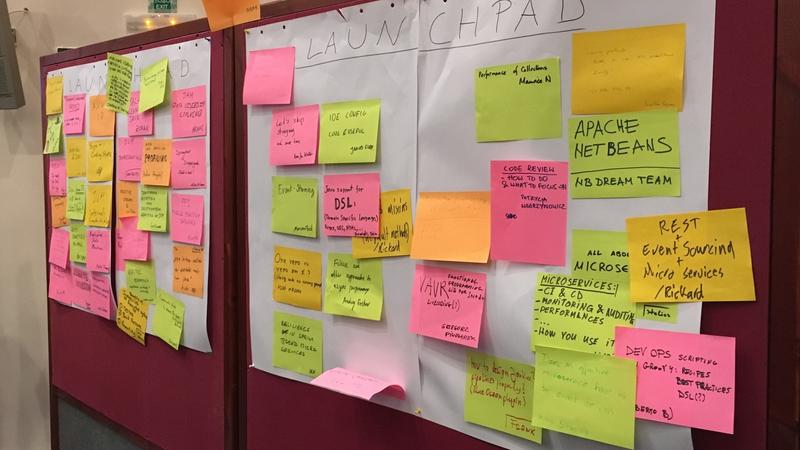
Next, some of the topics were moved from the Launchpad to another board, the one with the Planned Sessions, where a meeting room was allocated for the discussion of each topic:
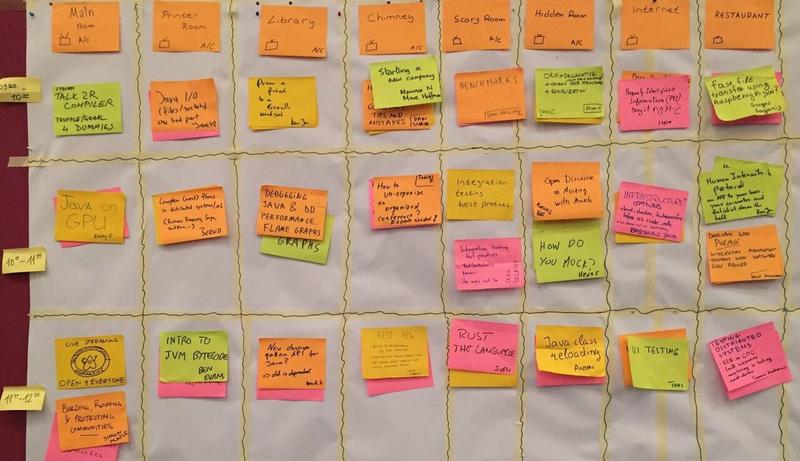
… and here comes the most interesting aspect of JCrete: Who will be the speaker of each session? Well, any participant can be a speaker!
If a participant is an expert on a topic, then she/he should participate in that session and share her/his knowledge with everyone else. However, that doesn’t mean that you have to be an expert in order to participate; anyone may contribute to a session, by asking questions or sharing their experience on that topic.
To help the discussion flow, there are six chairs for the speakers. A maximum of five speakers are allowed “on stage” at any given time. The sixth chair must always remain empty, for any conference participant to be able to join the discussion; when that happens, one of the previous speakers (who has already shared her/his knowledge) must leave the discussion, thus leaving one chair empty.
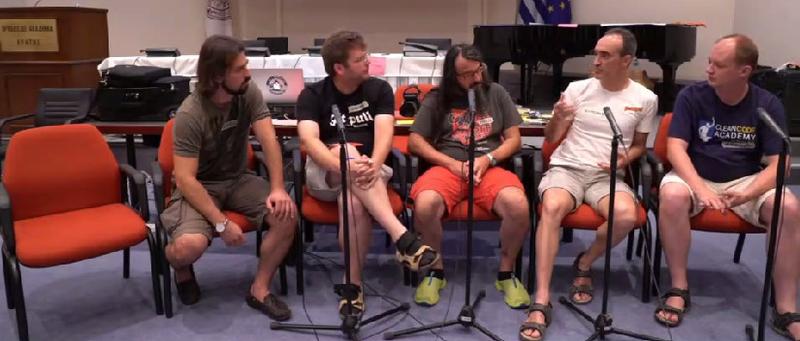
According to my experience, this setup helped establish sparkling conversations, with the speakers openly sharing their experiences, being authentic while expressing their views on a topic.
As to the quality of the knowledge shared during those discussions, it is noteworthy that the participants of JCrete are mostly experienced developers, with the majority of them being:
- Java Champions: a title awarded to developers for their significant contribution to the Java community.
- Authors of books related to Java.
- Speakers at Java conferences.
JCrete 2017: Topics discussed
The topics discussed in JCrete 2017 (displayed in the following photo) have been quite diverse; while most of the sessions have been focused on Java, there were also several non-technical sessions, such as:
- discussing the challenges of working remotely,
- a session for existing and aspiring book writers,
- how to deal with conflicts at work, how to negotiate salaries, etc.
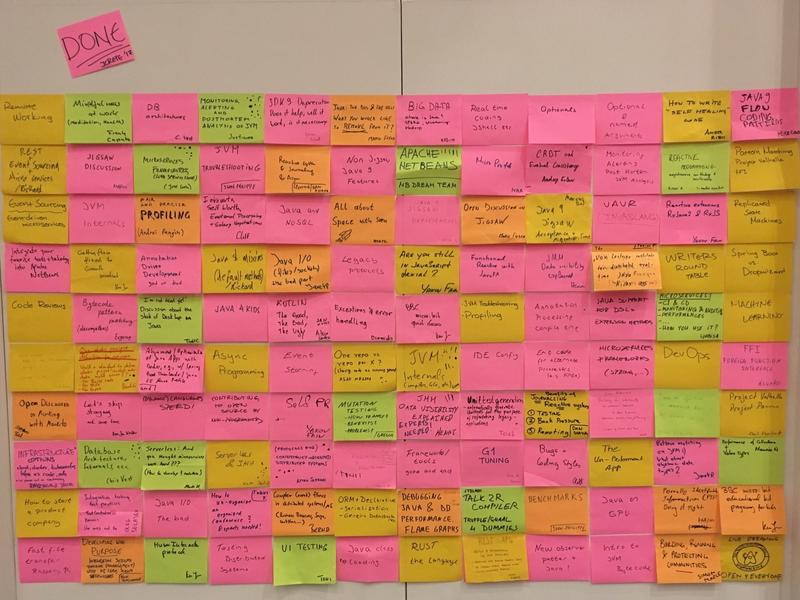
Some of the technical discussions that I have enjoyed attending were about:
- Java 9 features, including the new modules system, which is introduced with Jigsaw.
- G1 Garbage Collector that will be the default GC in Java 9.
- Reactive programming, sharing experiences with various reactive libraries, such as RxJava, and Reactor.
- Microservices, analyzing the pros and cons of various frameworks, like Dropwizard and Spring Cloud.
What I enjoyed the most of all were the endless discussions, outside the conference hours: while having dinner together at local restaurants, or while going on excursions to some of the best beaches in Crete.
I have met some truly exceptional colleagues, all of them having one thing in common: sharing a passion for software development.
JCrete 2017: Was it worth it?
It was definitely an exceptional conference, one of the best that I have ever been. I am looking forward to attending JCrete 2018!
JCrete 2017: Links
Are you interested in finding out more about JCrete 2017? Here are some of the sessions that have been recorded by nighthacking.com:
- Java 9 Features (except Jigsaw)
- Java 9 Jigsaw
- Bugs and Coding Styles
- Tracking health of machines (GC, Logs, Heapdumps)
- Optional and Named Targets
- Valhalla value types
- Apache @ Netbeans
- Talk to a compiler - Graal and Truffle for Dummies
- Java and PostgreSQL performance debugging
- Learn how to become a NightHacker

